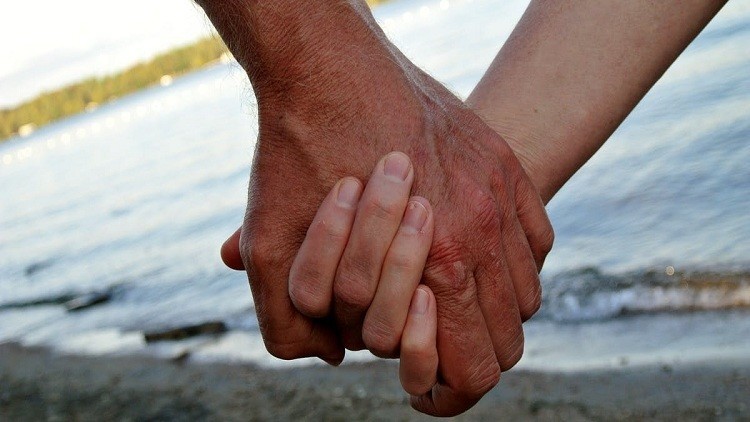Couples share colonies of skin bacteria

Couples share a lot of things, including family, baths, food, etc., but the only thing we might not expect is skin bacteria.
In a study published in the journal mSystems, researchers studied skin microbial in 10 sexually active couples who live together.
The microbium is a small ecosystem of bacteria, fungi, viruses and other microorganisms that live inside and outside the body, where every square centimeter of skin hosts between one million and billions of microorganisms, according to the study.
read more
The behaviors and feelings of women are affected by the bacteria inside their bodies
After analyzing 330 skin samples collected from 17 body parts per participant, the researchers found that each person had a significant impact on the microbial communities of his partner's skin.
In fact, computer algorithms based on microbial data analysis were able to identify closely related pairs of up to 86%.
"The most surprising aspect of the study was that we were able to identify a common microbial fingerprint between couples living together," said Josh Newfield, a biologist at Waterloo University and author of the study, in an e-mail.
The results showed that feet are often the most likely part of the host community to host microbial communities .
The researchers did not study the reasons for this, but they believe that the microbes taken by the skin from the home, where humans drop more than one million biological particles every hour, and it is especially easy on the feet to pick up new microbes, both in the shared bathroom, Example, or even while walking two feet around the house.
Most of the bacteria on the skin are harmless or useful, as pathogenic microorganisms prevent skin from settling in the area, but little is known about the ecosystem.
read more
Our eyes contain bacteria protected from dangerous viruses!
"The more we know about the factors that affect human microbiology, including the microbes that encase our bodies, the more we understand the barriers that protect them from the disease, train our immune system and connect to the environments we inhabit," Dr. Newfield said.
Other factors, such as gender, affect a person's microbiology more closely than his partner, since any sample taken from a woman's body will match another sample taken from another area of her body more than her partner.
Ashley Ross, a co-author of this study and a master of biology at Waterloo University, asserts that the partner still plays an important role in the formation of your "microbial profile", adding that "if not the main role, it is another piece of the puzzle" .
In addition to the feet, partners of both sexes share similar microbial communities on the trunk, navel, and eyelids. Ross points out that the exchange of microbial communities can sometimes occur while sleeping in the same bed and sharing the covers.
Ross and her colleagues found that microbial communities in the femur were determined by gender. Computer algorithms were able to distinguish between men and women with 100% accuracy through sample analysis alone.
Skin bacteria
This may be related to the influence of bacteria on the femoral femur of the vagina, according to Ross.
Given the size of the small sample of 20 participants, it was difficult to generalize the results to all and, together with her colleagues, it would be useful to study pairs of different races and races.
Ultimately, Dr. Newfield says, the results may have practical applications for designing public spaces and common areas to reduce the spread of pathogens among individuals.
.jpg)
Great Post ahmedsaad .I like the quality of your posts. You deserve a vote & follow. If You want to make a good friendship then please.........check my blog & Follow me. I'm new but I hope You like my post also.
You + us = we are awesome.